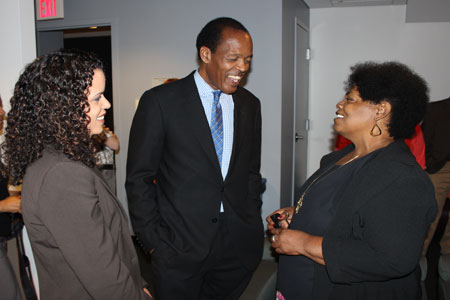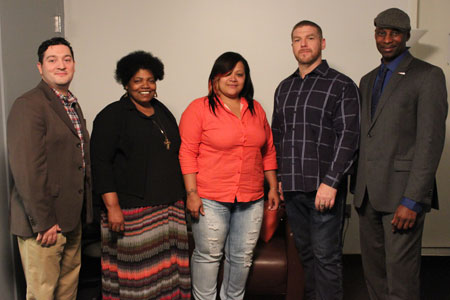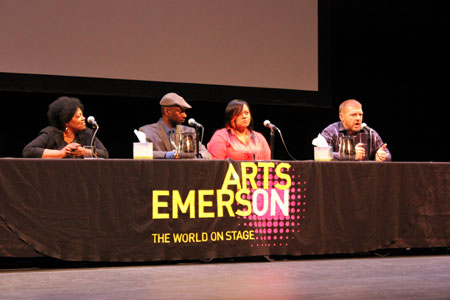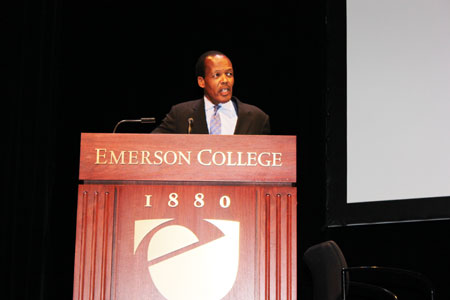Powerful talk on media, gun violence
The Elma Lewis Center for Civic Engagement, Research and Learning kicked off its first campus event Thursday, September 19, with powerful commentary on how the news media covers gun violence from several prominent panelists, including the aunt of Columbine victim Isaiah Shoels.
“The media is going to carry it any way they want to,” said Betty Shoels, whose nephew was the only African-American victim in the 1999 school massacre. “They’re going to victimize the victims and glorify the assailant. That’s what’s happening now with all these tragedies. They [mass murderers] seek affection and attention and the media gives it to them, so they continue to kill.”

Shoel’s comments came during the panel discussion The Violence Divide: Race and Class Disparities in the Media’s Response to Gun Violence at the Cutler Majestic Theatre.
“Part of what this evening is all about is giving a voice to the forgotten stories and forgotten angles,” said Kelly Bates, founding director of the Elma Lewis Center, who moderated the discussion.
Shoels and co-panelist Taisha Akins, an African-American from Boston who became an activist after her son was lost to gun violence, both felt they endured poor treatment by the media when covering their loved one’s deaths.
“I definitely feel that if you’re black, you are treated different than if you were in the white community,” Akins said. “The way they labeled and describe these kids like they did my son, saying he was ‘well known to police,’ I felt like that was discouraging people who had answers [to come forward to police.]”


